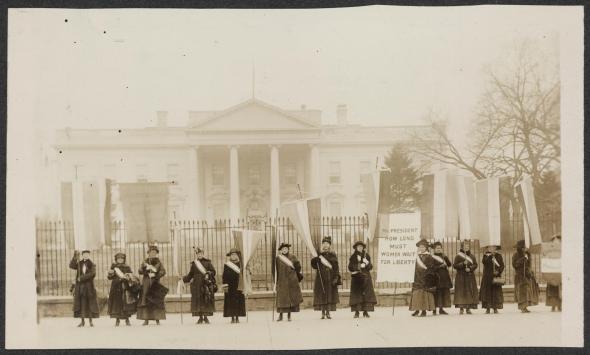A woman who publicly displays her nipples in Fort Collins, Colorado, can be arrested and imprisoned for 180 days. A man who publicly displays his nipples in Fort Collins cannot be arrested at all, because he isn’t breaking the law. Free the Nipple, an advocacy group that opposes sex-specific breast-exposure laws, is challenging the ordinance as a violation of the 14th Amendment’s Equal Protection Clause, which generally bars sex discrimination. Fort Collins asked U.S. District Judge R. Brooke Jackson to toss out the lawsuit. But on Oct. 20, Jackson refused, holding that Free the Nipple had “adequately stated a claim under the Fourteenth Amendment” and allowing the case to proceed.
This litigation is an excellent test of the judiciary’s commitment to eradicate sex discrimination that perpetuates repressive stereotypes under the guise of protecting public morality. Fort Collins could not defend its ordinance without reverting to reactionary presumptions: The city insisted that female breast exposure violates “the values of the Fort Collins community, including its sense of decency and family”; that women exposing their nipples “impede the right of others to enjoy public spaces”; and that exposed female breasts constitute “pornography.” Free the Nipple counters that these defenses only further demonstrate the unconstitutionality of the ordinance, proving that it is used “to perpetuate stereotypes about girls and women”—specifically, that society considers women and their breasts to be “primarily objects of sexual desire.”
In his admirably thorough ruling, Jackson explains why Free the Nipple has, indeed, stated a legitimate claim of unconstitutional sex discrimination. Fort Collins’ defenses of its own ordinance do arguably flow from “unconstitutional stereotypes of, generalizations about, and prejudices against women.” Jackson cites a series of cases holding that laws protecting “public sensibilities” may actually be grounded in “archaic prejudice” and “unexamined stereotypes” about women, in violation of the Equal Protection Clause. He also noted that, while Fort Collins asserts that breasts are a “real” difference between the sexes, this rationale has been used to justify insidious sexism in the past—including a ban on female bartenders and attorneys. Jackson continued (citations omitted):
As the Court’s sex discrimination jurisprudence developed, however, the Court came to undermine its reasoning in those and other decisions about there being “broad leeway” for government to discriminate based on “real” differences between men and women. Instead, the Court acknowledged that while there may be some “real” differences between men and women, these differences may only serve as the basis of discriminatory laws when such laws “compensate” one sex for the disabilities or inequities that sex has historically suffered. These difference could not be used “to create or perpetuate the legal, social, and economic inferiority” of one sex as governments had once routinely done. Thus, whereas the Court previously interpreted the Fourteenth Amendment to allow governments to discriminate based on “real” differences to promote “sex-based inequality[,]” the Court has since interpreted the Equal Protection Clause to permit only those laws that do the opposite.
Fort Collins, Jackson concludes, “never seriously explains why plaintiff’s argument that [the ordinance] and its justifications are unconstitutionally grounded in stereotypes and prejudices does not state a viable equal protection claim.” Therefore, Free the Nipple has earned the opportunity to mount a full legal attack on the law, under both the federal Equal Protection Clause and Colorado’s Equal Rights Amendment, which provides even stronger protection against sex-based discrimination.
Jackson’s ruling is courageous and correct. As Free the Nipple amply demonstrates, breast-exposure laws like Fort Collins’ are obviously rooted in archaic sex stereotypes about women and sexuality, resting on the presumption that exposed female nipples are titillating and arousing, while exposed male nipples are unerotic and therefore acceptable. This distinction views women’s breasts as little more than objects of sexual desire and gratification—and, in effect, punishes women for having breasts, which might arouse others, by imprisoning them if they dare expose their nipples. That form of “sex-based inequality” is anathema to the Equal Protection Clause. Jackson should follow the unimpeachable logic of his Thursday order and strike down the entire ordinance.
